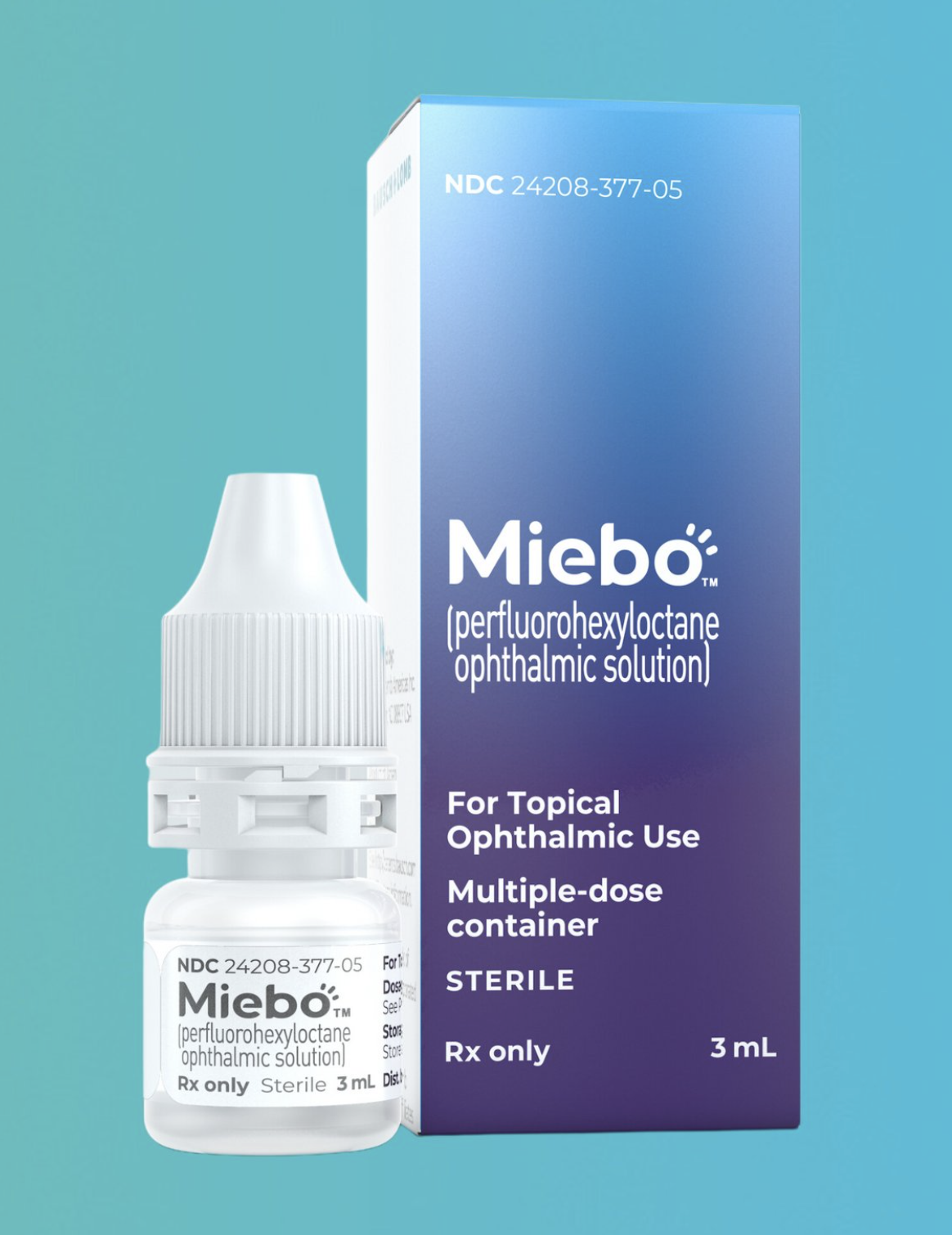 Miebo may particularly benefit those with dry eye related to MGD, as it targets tear evaporation. Photo: Bausch + Lomb. Click image to enlarge. |
After several years of clinical trials and widespread anticipation, Bausch + Lomb and Novaliq just announced the FDA approval of a new eye drop for evaporative dry eye. Sold under the name Miebo (perfluorohexyloctane ophthalmic solution; formerly known as NOV03), the drop is indicated to treat the signs and symptoms of dry eye disease (DED). The solution is also the first on the market to directly target tear evaporation—a leading cause of DED.
Miebo achieved primary endpoints and demonstrated good tolerability in all three trial phases. The two Phase III clinical trials, known as Gobi and Mojave, enrolled more than 1,200 patients with a history of DED and clinical signs of meibomian gland dysfunction (MGD). “The GOBI study showed a 30% improvement in total corneal staining and a 46% greater improvement in eye dryness scores from baseline at the primary endpoint day 57,” says Paul Karpecki, OD, medical director for Keplr Vision and the Dry Eye Institutes of Kentucky and Indiana and the Chief Clinical Editor for Review of Optometry.
Dr. Karpecki notes that what he finds even more impressive about the Phase III trial results is the speed of the drop’s effect. “Miebo demonstrated clinically significant improvement in total corneal staining and symptoms of DED in as early as two weeks,” he cites from the company’s data. In both Phase III trials, on day 15 (as well as day 57), a significant reduction in total corneal staining was observed in participants using Miebo vs. saline (placebo), B+L and Novaliq reported in a press release.
Adverse reactions were also uncommon among Miebo users in clinical trials. The developers noted that the most common adverse reactions observed in users were blurred vision (1.3% to 3%) and eye redness (1% to 3%).
With MGD contributing to the majority of dry eye cases, Miebo may offer this patient population an alternative therapeutic option to other types of drops and in-office procedures.
For more information, visit www.bausch.com.

